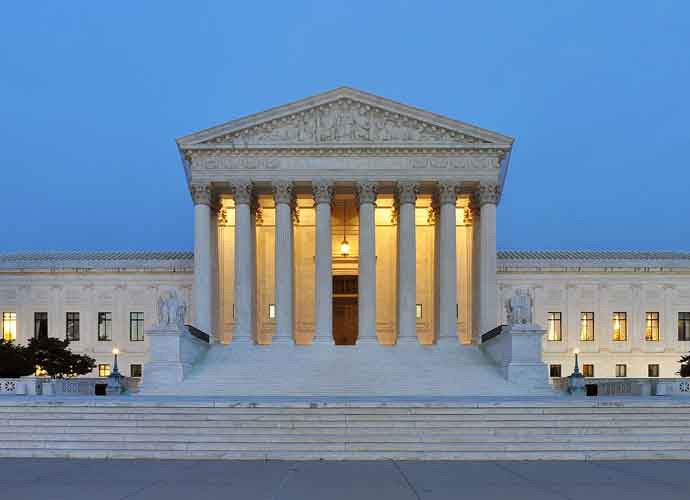

U.S. Supreme Court (Image: WIkimedia)
The United States Supreme Court rejected former President Donald Trump‘s effort to withhold records from the House select committee that is investigating the Jan. 6 Capitol attack.
The ruling ended in a 8-1 majority, with the Court’s most conservative justice, Clarence Thomas, being the only justice to side with Trump.
Trump contended that he had executive privilege as a former president, but President Joe Biden was willing to give the committee access to the files.
“The questions whether and in what circumstances a former President may obtain a court order preventing disclosure of privileged records from his tenure in office, in the face of a determination by the incumbent President to waive the privilege, are unprecedented and raise serious and substantial concerns,” the court said.
Subscribe to our free weekly newsletter!
A week of political news in your in-box.
We find the news you need to know, so you don't have to.
They did not directly answer those questions, but decided that Trump being the former president had nothing to do with the case since his “claims would have failed even if he were the incumbent,” the Supreme Court order said.
Over 700 pages of records will be sent to the committee.
Chairman Rep. Bennie Thompson (D-Mississippi) and Vice-Chair Rep. Liz Cheney (R-Wyoming) said in a statement released Wednesday night that the committee has already begun to receive documents.
“Our work goes forward to uncover all the facts about the violence of January 6th and its causes,” the statement said. “We will not be deterred in our effort to get answers for the American people, make legislative recommendations to strengthen our democracy, and help ensure nothing like that day ever happens again.”
While the justices agreed that Trump needed to hand over the records, Justice Brett Kavanaugh wrote an addition to the majority opinion. He said that former Presidents should, under normal circumstances, have communications privilege during their presidency.
“If Presidents and their advisers thought that the privilege’s protections would terminate at the end of the Presidency and that their privileged communications could be disclosed when the President left office (or were subject to the absolute control of a subsequent President who could be a political opponent of a former President), the consequences for the Presidency would be severe,” he wrote.
Kavanaugh also noted that executive privilege should not be absolute.
Sen. Mike Lee (R-Utah) is facing criticism after mocking the recent deadly shootings targeting Democratic…
On Monday, podcast host Tucker Carlson highlighted a foreign-policy divide among Trump supporters during his…
On Saturday, President Donald Trump hosted a parade in Washington, D.C., to celebrate the 250th…
President Donald Trump issued a statement urging Iran to accept a nuclear deal to prevent…
On Saturday, demonstrators across the U.S. participated in organized “No Kings Day” protests, which aimed…
Political activist David Hogg is leaving the Democratic National Committee after announcing he won’t run…